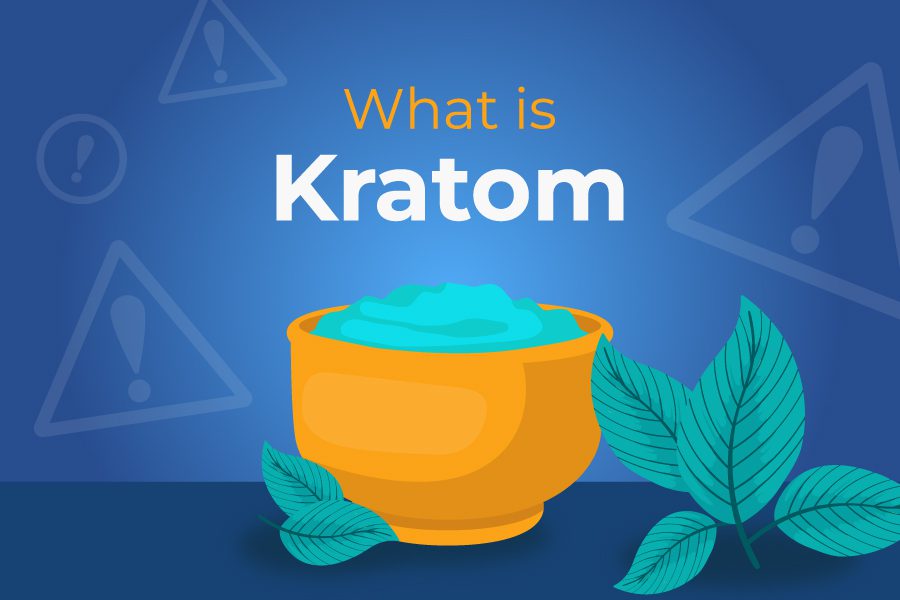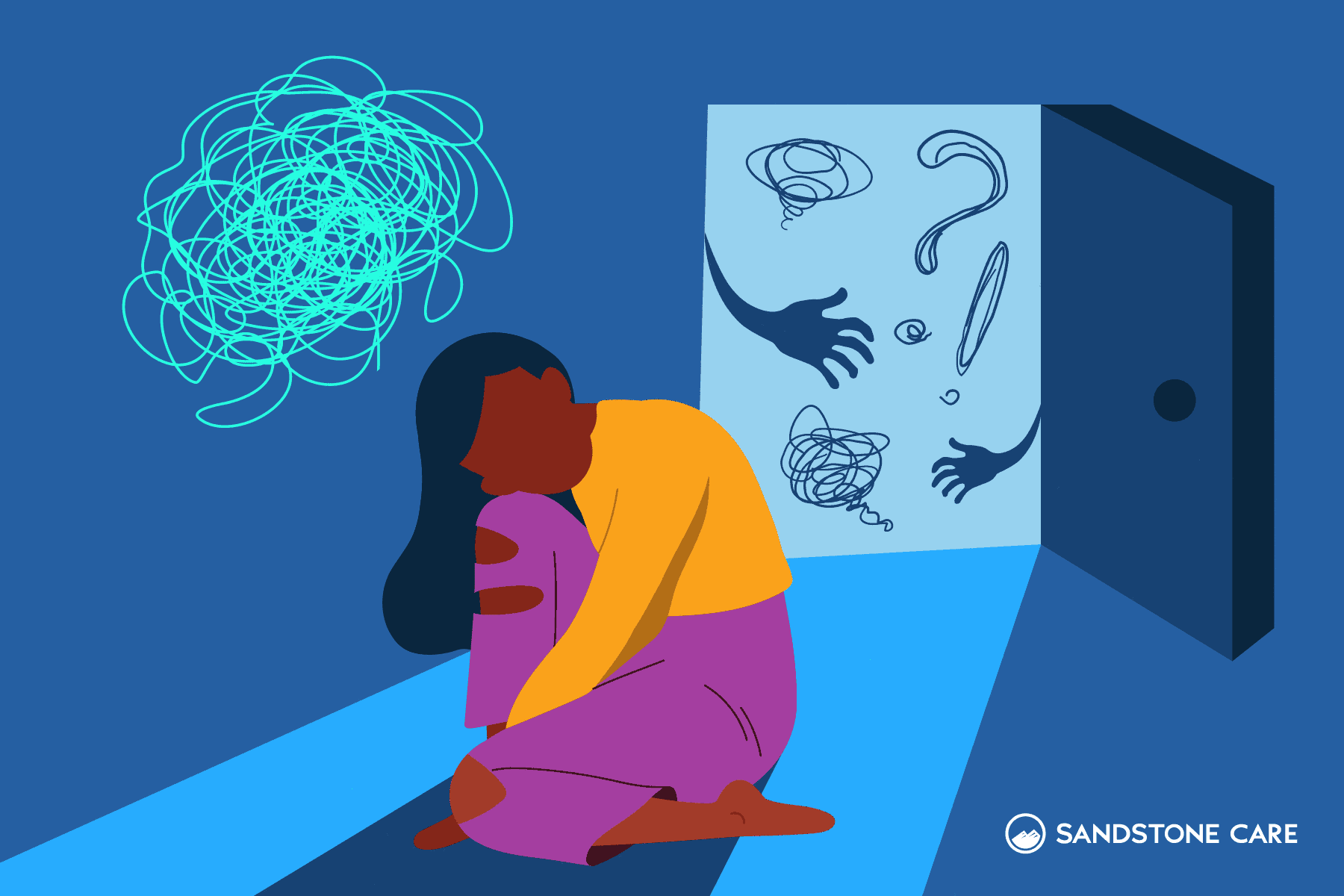Kratom Overview
What Is Kratom?
Kratom, which is also known by its scientific name Mitragyna speciosa korth, is a substance made from an evergreen tree native to Southeast Asia.
In particular, you might find these trees in countries like Thailand, Malaysia, and Indonesia.
Traditionally, locals would chew kratom leaves for medicinal purposes?
These leaves are known to help relieve pain and give you a boost of energy. They can also help to boost your mood and relieve things like coughs and diarrhea.
In more modern years, people have begun to use kratom for other medical conditions. Some healthcare providers have even looked to kratom to provide an alternative to opioid drugs.
Because kratom is believed to be a safer and more natural treatment method, it is sometimes used in place of opioids to treat chronic pain.
Kratom may also help those who are going through opioid withdrawal by alleviating their symptoms and making them more comfortable.
In the United States, kratom is legal in some but not all states.
Its use is still considered controversial by many healthcare professionals.
This is because some kratom users can experience side effects and even addiction as a result of this drug.
If you or someone you know is struggling with a substance use disorder, you’re not alone. Our team at Sandstone Care can help.
Is Kratom Addictive?
Yes, kratom can be addictive both psychologically and physically.
Some people may become dependent on kratom completely by accident.
Over time, they may need to use more and more of the drug to experience the same results. This can lead to addiction, withdrawal, and other serious health consequences.
What Does Kratom Feel Like?
Kratom can lead to a wide range of effects, from having a more sedative effect to a more stimulating effect.
There are two active compounds in kratom. They include mitragynine and 7-hydroxy mitragynine receptors.
There are three types of opioid receptors, including mu, delta, and kappa, and they all have different roles.
Mu-opioid receptors help with things like pain relief and reward.
Delta-opioid receptors help with regulating your mood.
Kappa-opioid receptors are known for regulating your body’s stress response but can also be associated with adverse events and side effects.
Since kratom interacts with your opioid receptors, it can have a wide range of different effects.
This is part of why self-treatment with kratom can become so dangerous so quickly.
If you’re taking only a low dose, you’re more likely to experience a boost in energy and alertness.
However, if you’re taking a moderate to high dose, you’re more likely to experience sedation and relaxation.
Does Kratom Get You High?
Yes, a moderate or high dose of kratom can cause you to experience a high.
Depending upon the strain of kratom and the dose you were prescribed, you may experience things like euphoria, relaxation, pain relief, and sedation.
Is Kratom a Drug?
Yes, even though kratom comes from a natural plant, it is still considered a drug because it has psychoactive qualities.
The U.S. Food and Drug Administration (FDA) does not currently regulate kratom use, but it does warn that there can be certain risks and safety concerns involved with using this drug.
The FDA also does not classify kratom as a dietary supplement.
Kratom is also not currently classified as a controlled substance by the Drug Enforcement Administration (DEA).
Is Kratom an Opioid?
Kratom is not a traditional opioid, but it can lead to many of the same effects as an opioid because its active compounds interact with your brain’s opioid receptors.
It also has an impact on other chemical processes in the brain involving rewards, such as serotonin and dopamine.
Is Kratom Legal?
Kratom is legal in some states but not in others. The legalization around it is still very complicated and controversial.
Within the states where kratom is legal, there are different restrictions on who can use it. There are also some states where kratom is legal in some counties but not in others.
For example, in Chicago, Illinois, the use of kratom is legal for both medicinal and recreational purposes as long as you are at least 18 years old.
However, this is not the case in all counties across Illinois.
In other states, kratom’s only legal use is for medical or pharmacology purposes, like to treat opioid use disorder.
In some American states, such as Indiana, Alabama, and Arkansas, kratom is considered completely illegal and is banned.
Kratom Side Effects
What Are the Side Effects of Kratom?
The side effects of kratom can vary in a major way depending upon the dose you’re taking and the particular strain of kratom.
If you’re taking a low dose of kratom, the side effects you may experience from kratom exposure will typically be pretty minor.
These side effects may include:
- Dizziness
- Drowsiness
- Loss of appetite
- Dry mouth
- Nausea or vomiting
- Itching
- Increased heart rate
- Constipation
- Sweating
If you’re taking a higher dose of kratom, the side effects that you may experience could be more severe and even life-threatening.
These side effects may include:
- Seizures
- Liver toxicity
- Hallucinations
- High blood pressure
- Weight loss
- Respiratory depression (including trouble breathing)
It’s because of these safety issues that many people still don’t believe that kratom is s safe for public health.
Are There Any Benefits to Kratom?
Yes, when used correctly under the supervision of a medical professional, kratom can be beneficial for some people.
However, kratom can affect people in different ways. While it may be beneficial for one person, it could possibly lead to negative side effects for another person.
Many of the benefits of kratom are exaggerated on social media platforms, which can cause people to take more of the drug in an attempt to reach the promised result.
Some of the main things that kratom may be able to help with include:
- Relieving pain
- Treating opioid use disorder
- Reducing the symptoms of anxiety and depression
- Increasing energy and focus
- Improving sleep
What Are the Kratom Side Effects for the Heart?
Kratom can have a lot of serious side effects on your heart, especially if you take a high dose for a long period of time.
Some of these side effects may include:
- Heart palpitations
- Temporary spikes in blood pressure
- Low blood pressure
- Irregular heartbeat
- Risk of cardiac arrest
What Are the Kratom Effects on the Liver?
The liver metabolizes the active compounds that are in kratom, but over time, this can cause a strain on the liver and can cause liver damage.
The strain that kratom can put on the liver can trigger a type of toxicity called hepatotoxicity. This can lead to serious health problems.
If you are experiencing any strange or uncomfortable symptoms after using kratom, reach out to a poison control center right away.
This is especially important since the labeling on kratom products can sometimes not match the toxicology of the actual product.
Does Kratom Lower Testosterone?
While there has only been limited research into this, there are some concerns that kratom use over time can lead to hormone imbalances, including lower testosterone.
Dangers of Kratom
Is Kratom Safe?
The safety of kratom is still being debated, and it’s because of this that it is still banned in several US states.
What Are the Long-term Dangers of Kratom?
If you take kratom over an extended period of time and take it in a high dose, it can lead to physical and mental long-term dangers.
Some of these dangers include:
- Dependence and addiction
- Cardiovascular problems
- Liver damage
- Possible hormonal imbalances
- Gastrointestinal issues
- Severe weight loss
- Malnutrition
Because kratom is not regulated in many areas, there is also the risk of the ingestion of contaminants.
These contaminants could include things like heavy metals such as lead or arsenic. They may also include dangerous bacteria that can make you very sick, such as salmonella.
If a woman takes kratom while she is pregnant, it can also cause a condition called neonatal abstinence syndrome (NAS).
With this condition, a newborn baby will experience withdrawal symptoms after birth. These symptoms could include excessive crying, tremors and muscle spasms, and even seizures.
Can You Overdose on Kratom?
Yes, it is possible to overdose on kratom, and it can lead to toxicity and other potentially life-threatening problems.
Kratom Withdrawal
What Are Kratom Withdrawal Symptoms?
Some common withdrawal symptoms associated with kratom withdrawal include nausea and vomiting, muscle aches, tremors, sleep problems, and sweating.
In some cases, people will also experience psychological withdrawal symptoms like anxiety, irritability, and depression.
How Long Does Kratom Stay In Your System?
How long kratom stays in your system depends on a lot of different factors, like the dose you took, your age, and how long you’ve been taking the drug.
In most cases, kratom will be out of your system in about 1 to days.
However, if someone takes a high dose of kratom and has been taking it for a long time, it could take longer for it to leave their system completely.
Does Kratom Show Up on a Drug Test?
Yes, kratom can show up on a drug test and can actually still be detected in urine for a week after use.
What Helps With Kratom Withdrawals?
One of the best ways to avoid kratom withdrawal is by gradual tapering, which is when you take a smaller dose of kratom over time.
It can also help you stay hydrated, exercise, and work with a mental health professional who can help you deal with potential cravings.
Kratom Products and Types of Kratom
What Are Kratom Drinks or Kratom Tea?
They are beverages that are made by infusing kratom leaves or powder into different drinks.
Some people may use these drinks for energy or pain relief.
What Is CBD Kratom?
Some stores sell products that include both CBD and Kratom together that are used for different therapeutic benefits like reducing anxiety, relieving pain, or improving sleep.
What Is Kratom Powder?
Kratom powder is a powdered form of the dried leaves of the kratom tree.
What Is Kratom Extract?
Kratom extract is a concentrated form of kratom that is made by boiling the leaves of the kratom tree and then extracting its active alkaloids.
What Are Kratom Pills?
Kratom pills are capsules that contain kratom powder that has been ground up until it reaches a very fine consistency.
What Is a Kratom Bar?
A kratom bar is like a traditional bar, but instead of alcohol, beverages that are infused with kratom are served.
Kratom Interactions
What Is Kratom vs Kava?
Kratom and kava are both made of plants and are used for therapeutic benefits, but they have different effects and risks.
Kratom is made from kratom leaves and affects the brain’s opioid receptors. It can help with managing pain and reducing anxiety.
However, it can also lead to addiction, liver damage, and unpleasant side effects.
Kava is made from the root of the kava plant, which is native to the South Pacific. It can be used to promote sleep and make you feel more relaxed.
However, in high doses, it can lead to liver toxicity, over-sedation, and poor coordination.
If you are struggling with a condition such as anxiety, it is important to reach out to a psychiatry professional rather than attempting to medicate yourself with products like kratom or kava.
What Happens When You Take Kratom and Alcohol?
You should not take kratom and alcohol together because alcohol can enhance the effects of kratom by causing too much sedation and other possible dangers.
What Happens When You Take Kratom and Adderall?
Taking kratom and Adderall together can be dangerous because both substances affect the central nervous system, and this can lead to serious mental and physical problems.
Kratom Addiction Treatment
How to Recover from Kratom Addiction?
If you’re struggling with an addiction to kratom, the best thing you can do is reach out to a professional for treatment.
Working with a therapist can help you to understand how your addiction formed and why.
Your doctor can also help you to gradually taper off your kratom usage in order to avoid withdrawal symptoms.
You can also consider joining a support group to help you in your recovery.
How to Tell if Someone Is Addicted to Kratom?
If someone is addicted to kratom, they will likely display some behavioral, physical, and psychological signs that will suggest they have a problem.
Some behavioral signs that someone is addicted to kratom may include:
- Isolating themselves from other people
- Struggling to keep up with personal or professional responsibilities
- Spending an excessive amount of time and money using kratom
- Trying to cut back or reduce their kratom use but struggling to do so
Some physical signs that someone is addicted to kratom may include:
- Changes in weight
- Chronic gastrointestinal issues
- Drowsiness
- Noticeable withdrawal symptoms
Some psychological signs that someone is addicted to kratom may include:
- Frequent mood swings
- Anxiety
- Depression
- Lack of interest in the things they used to enjoy and be passionate about
What Is the Best Treatment for Kratom Addiction?
Both medical help and mental health therapy combined with lifestyle changes are one of the most effective treatments for kratom addiction.
Working with a doctor is very important to help guide you to taper off your dose and monitor any potential withdrawal side effects.
Going to counseling is also important to help you understand the psychological effects of your addiction.








